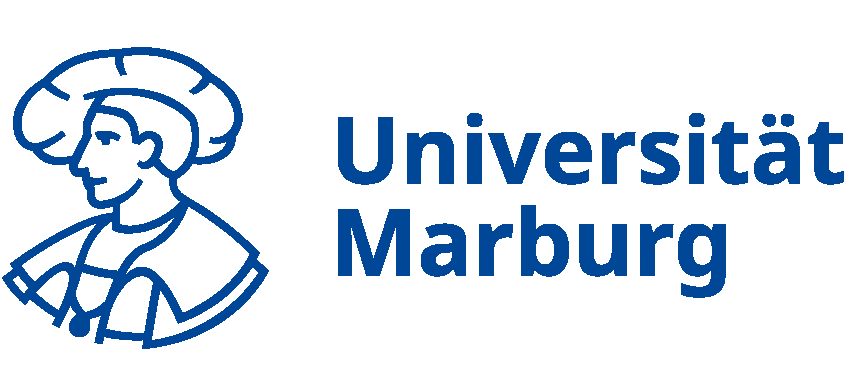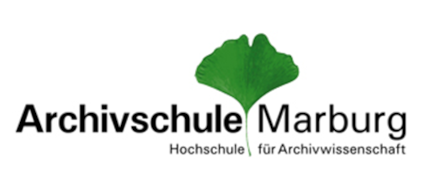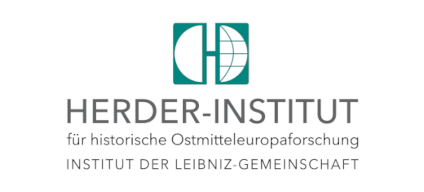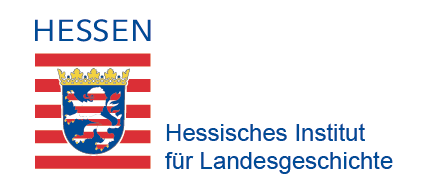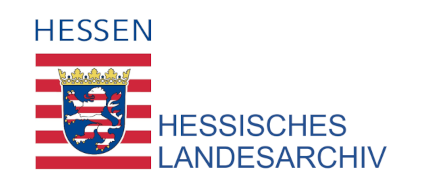Main Content
Research and Infrastructure Projects at the MCDCI
Here is an overview of the research and infrastructure projects of the MCDCI. (Note: Names of projects and institutes are kept in the original German when there is no official English name)
Current Projects
Inhalt ausklappen Inhalt einklappen Ästhetiken des Zugangs. Datenvisualisierungen in der digitalen Filmgeschichtsschreibung am Beispiel der Forschung zu Frauen im Frühen Kino (DAVIF)
Project leadership: Dr. Sarah-Mai Dang
Contact: sarah-mai.dang[at]uni-marburg.de
Funding: Federal Ministry of Education and Research (BMBF)
Project time frame: 2021-2025
Key Words: Data Feminism, Data visualizations, digital humanities, digital film studies, feminist film history, media studies, metadata
Project Description:
Up until the 1990s, it was commonly believed that women only played a small role in the beginning years of film production. Even today, the achievements of women are usually only credited in the footnotes. Thanks to the growing research on early cinema, we now know that women have had a surprisingly large and broad influence on film industry since the beginning of film history. Due to the large number of unexpected discoveries, one of the biggest challenges of today’s feminist film research is not only telling a different history, but rather to tell the histories differently.
Methodological and epistemological questions are therefore directly related. What can be known and how? How can blind spots be represented without assuming a master narrative of history? How can history be told with its contradictions and contingency? To make the unseen visible and to make history and its complexity able to be experienced -- that is the goal of the research group DAVIF at the Institute for Media Studies at the Philipps University of Marburg. With this background, the group examines the potential and challenges of using digital technologies to rewrite Film history. With this, the group combines theoretical approaches with practical and explorative approaches. In addition to theoretical case studies about data-backed forms of digital representation (charts, network analyses, interactive web documentation), the chosen method of data visualization is to be probed, analyzed and further developed. For that, the research group uses data and sources of the international Women Film Pioneers Project (WFPP) and the Deutsches Filminstitut und Filmmuseum (DFF). The Arbeitsgruppe Grafik und Multimedia of Philipps University of Marburg supports the project in the technological implementation.
With the core being film and media studies, the project uses methods from historical studies, library and archive science, computer science and science and technology studies as well as critical data studies and digital humanities. It therefore connects an interdisciplinary discourse analysis with a usage-based research approach. The project strives to make ground-breaking contributions to the development of film theory regarding digital tools and methods in an international context of media studies. In addition, the project hopes to strengthen the critical discourse about research data management and open science in the humanities.
Project website (in German): hereInhalt ausklappen Inhalt einklappen Digital Cinema-Hub (DiCi-Hub): A Research Hub for Digital Film Studies
Project leadership: Prof. Dr. Malte Hagener (Philipps University of Marburg), Prof. Dr. Yvonne Zimmermann (Philipps University of Marburg), Prof. Dr. Alexandra Schneider (Johannes Gutenberg University of Mainz), Prof. Dr. Vinzenz Hediger (Goethe University of Frankfurt am Main)
Contact: dicihub[at]uni-marburg.de
Funding: Volkswagen Foundation
Project timeframe: 2021 -- 2026
Keywords: digital film studies, data processing, visualization, research and teaching
Project Description:
The joint project DiCi-Hub is facing the challenge of digital tools and methods as they relate to film and media studies. The project brings three local research universities with internationally renown film studies departments and strong track records together. These universities (Johannes Gutenberg University of Mainz, Goethe University of Frankfurt, and Philipps University of Marburg), located in the Rhein-Main Mittelhessen Region, came together in order to develop new conceptual foundations and methods for this subject. DiCi-Hub especially combines established hermeneutic and post-hermeneutic methods of film studies with new digital research instruments and methods, which are made to newly position the field of film studies so that digitalization can be viewed as an impetus for innovation in the areas of teaching and research. DiCi-Hub is funded by the Volkswagen Foundation as part of the funding initiative “Weltwissen -- Strukturelle Stärkung kleiner Fächer” (English: “World Knowledge -- Structural Strengthening of Smaller Subjects”).
Project website (in German): hereInhalt ausklappen Inhalt einklappen disiecta membra. Steinarchitektur und Städtewesen im römischen Deutschland
Project Leadership: Prof. Dr. Aline Deicke (Philipps University of Marburg), Prof. Dr. Johannes Lipps (Johannes Gutenberg University of Mainz), Dr. Kerstin P. Hofmann (Römisch-Germanische Kommission)
Contact: disiecta-membra[at]adwmainz.de
Funding: The Union of the German Academies of Sciences and Humanities
Project timeframe: 2023 - 2046
Keywords: digital cultural heritage, Roman stone architecture, multimedial editions, semantic modeling, standard data
Project Description:
Roman stone architecture depicts a unique treasure of cultural heritage that serves as evidence of an early form of urban life in Germany. The ruins of Roman cities and buildings defined the landscape up through the Middle Ages, and were therefore anchored more strongly in the minds of the population than other remains of antiquity. The buildings were continuously used for changing functions or used as rock mines for new constructions, such as building new city walls. The recent excavation of those medieval city walls, on the other hand, led to a rediscovery of antique pieces of architecture. These, as well as other remains, make up the majority of the Roman architecture in Germany that were, until now, not documented and appraised.
The plan is to index around 25,000 structural units and 5,000 building artifacts in a dynamic and interconnected digital edition. The processed data are being modeled, gathered and made freely accessible, linkable and usable in a joint effort with NFDI4Objects and NFDI4Culture -- including in iDAl.world and in Propylaeum-Vitae. These provide a small amount of access to stone architecture and urbanism in Roman Germany, which are of superior interest due to what they mean for our modern perception of urbanity.
Cooperation Partners:
— Deutsches Archäologisches Institut
— Universitätsbibliothek Heidelberg/ FID Propylaeum
— LEIZA - Leibniz-Zentrum für Archäologie
— Forschungsprofil JGU Mainz: 40.000 Years of Human Challenges: Perception, Conceptualization and Coping in Premodern Societies
— VARM - Verbund Archäologie Rhein-Main
— Institutionen der Landesdenkmalpflege:
— Bayern: Bayerisches Landesamt für Denkmalpflege
— Baden-Württemberg: Landesamt für Denkmalpflege Baden-Württemberg
— Hessen: Landesamt für Denkmalpflege Hessen
— Nordrhein-Westfalen: LVR-Amt für Bodendenkmalpflege im Rheinland, Römisch-Germanisches Museum der Stadt Köln, LWL-Archäologie für Westfalen
— Rheinland-Pfalz: GDKE - Generaldirektion Kulturelles Erbe Rheinland-Pfalz
— Saarland: Landesdenkmalamt Saarland
Project Website: hereInhalt ausklappen Inhalt einklappen FID Media - Fachinformationsdienst Kommunikations- und Medienwissenschaft
Project leadership: Dr. Anne Lipp, Prof. Dr. Malte Hagener, Dr. Andrea Wolff-Wölk
Contact: info[at]fid-media.de
Funding: German Research Foundation (DFG)
Project timeframe: 2024 - 2027
Keywords: repository, communication studies, media studies, Open Science, research data, publications
Project description:
The FID Media is the central portal for expert information and Open-Access publishing for communications and media studies. Since September 2024, the FID Media has been merging two important services for these subjects: adlr.link as the current literature portal and the Open-Access publishing services by media/rep/, a repository for media science. The catalogue of the FID Media is the central portal of resources for everyone involved in communication, film, television or media in general, whether they work, research, teach or study in these fields. As a service for information, we quickly and effectively provide Literature for researchers in communication, media and film studies, as well as other related areas of specialty. We are also expanding our services in the direction of Open-Access publishing, scientific subject information and research data. The FID specializes in the Open-Science-Transformation, Community Features as well as digitalization and indexing historical exhibitions. The FID is financed by funds from the Leipzig University Library, the Marburg University Library and the Institute for Media Studies at the Philipps University of Marburg as well as external funding by the German Research Foundation as part of their funding program "Fachinformationsdienste für die Wissenschaft."
Project website: hereInhalt ausklappen Inhalt einklappen Handschriftencensus
Project leadership: Prof. Dr. Jürgen Wolf, Prof. Dr. Nathanael Busch
Contact: handschriftencensus[at]adwmainz.de
Funding: Union of German Academies of Sciences and Humanities
Start of project: 2017
Keywords: Online Database, German-language handwriting, Middle Ages, digital representations
Project Description:
The Handschriftencensus is an online database of complete German-language manuscripts of the Middle Ages (750-1520) worldwide. It brings together information about people, works and heritage. It additionally provides related historical resources to every piece of text as well as access to digital representations. The Handschriftencensus is committed to being a central point for recording manuscripts in their many forms, their datings, their origins and their content, and is also a professional instrument for the scientific research of German-language manuscripts of the past.
Project website: hereInhalt ausklappen Inhalt einklappen HERMES - Humanities Education in Research, Data, and Methods
Project leadership: Prof. Dr. Malte Hagener
Contact: hermes-hub[at]uni-marburg.de
Funding: Federal Ministry of Education and Research (BMBF), Funding ID 16DKZ2009
Project timeframe: 2023 – 2026
Keywords: Data competence, critical data culture, humanities and cultural studies, GLAM, digital humanities, data-scientific methods, Open Educational Resources, data challenges, transfer, data-driven research
Project description:
The project Humanities Education in Research, Data, and Methods, or HERMES for short, is dedicated to fulfilling the need for education, training and praxis-oriented advising in the area of data competence for research and teaching in the humanities and cultural studies, as well as in the GLAM-areas (Galleries, Libraries, Archives and Museums). HERMES establishes places for learning, research and networking in which data competencies in the humanities and cultural studies are taught, developed, and critically reflected upon.
Taking part in HERMES are, apart from the University of Marburg, the Academy of Sciences and Literature in Mainz, the Leibniz Institute for European History in Mainz, the University of Applied Sciences in Mainz, the German National Library, the Herder Institute for Historical Research on Eastern Europe in Marburg, the Technical University of Darmstadt, the University of Applied Sciences in Darmstadt, and the University of Trier.
Project website: hereInhalt ausklappen Inhalt einklappen Kontinuitäten von Anti-Schwarzen-Rassismus (ASR) vor, während und nach dem Nationalsozialismus - eine partizipative Erinnerungsintervention
Project leadership: Prof. Dr. Christina Brüning (E-Mail)
Funding: Erinnerung, Verantwortung, Zukunft Foundation; Federal Ministry of Finance
Project timeline: from 01.06.2024 to 31.12.2025
Keywords: Anti-Black racism, social media, national socialism/Nazism
Project description:
The project "Kontinuitäten von Anti-Schwarzen-Rassismus (ASR) vor, während und nach dem Nationalsozialismus - eine partizipative Erinnerungsintervention" aims to prepare and disseminate the continuities of colonial racism, Nazi racial ideology and current anti-Black racism for social media users in low-threshold memory interventions based on scientifically and didactically processed biographies of Black people who were persecuted during the Nazi injustice.
Furthermore, the project aims to develop an external learning website for the implementation of the didactic educational offerings, which will be easily accessible for both facilitators and learners. The learning platform is intended to serve as a starting point for classroom use, providing facilitators with a secure didactic foundation for implementing anti-racist, multidirectional references. This support will be complemented by workshops and collaborating content creators who already create content in the ASR field and have digital reach.
Project websites: here (University of Marburg) and here (EVZ Foundation)Inhalt ausklappen Inhalt einklappen NFDI4Culture
Project leadership: Prof. Dr. Malte Hagener
Contact: NFDI4Culture Coordination Office
Funding: German Research Foundation (DFG)
Project timeline: 2020 – 2025
Keywords: Research data, research data management, data literacy, humanities and cultural studies, GLAM, digital humanities, cultural heritage, infrastructure, networking, research and teaching, education and training, open educational resources
Project Description:
Digital data on tangible and intangible cultural assets are an essential part of daily life, communication, and cultural experience. They are not very important for future generations of researchers, but they also form the basis of ongoing transfer processes between researchers, artists, the cultural economy, and civil society. The long-term preservation and reliable availability of digital cultural assets in accordance with the FAIR and CARE principles are fundamental to the cultural self-image of individuals, groups, and society as a whole. The goal of NFDI4Culture is to establish a needs-based infrastructure for research data on tangible and intangible cultural assets within the overall structure of the National Research Data Infrastructure (NFDI).
The research landscape targeted by NFDI4Culture, ranging from architecture, art, and music to theater, dance, film, and media studies, is very diverse. It encompasses university institutes, art and music colleges, academies, galleries, libraries, archives, museums, and individual researchers. Science-led research data management requires the active participation of all stakeholders. The consortium therefore provides extensive participation opportunities for users from all involved disciplines, as well as for artists and cultural practitioners from a wide range of fields, and representatives of civil society. It aims to ideally represent the broad spectrum of different stakeholders in the field of cultural heritage. As of now, the consortium network includes 117 partner institutions. NFDI4Culture is jointly funded by the federal and state governments and administered by the German Research Foundation (DFG).
The Cultural Research Data Academy (CRDA) is located at the Marburg Center for Digital Culture and Infrastructure (MCDCI). The goal of the CRDA is to develop and improve "cultural" data and coding literacy as well as computational thinking and data management skills for the humanities and culture studies. Educators often face institutional constraints that delay or even prevent sustainable solutions for integrating the necessary data and coding literacy into training concepts and curricula. Universities and other institutions already offer various training programs, most of which only provide a generic (i.e., not tailored to specific data types or subjects) approach to research data management. Courses and information materials specific to media and data type are still insufficient for researchers, GLAM (galleries, libraries, archives, museums) staff, and disseminators. The same applies to generally accepted quality criteria and frameworks. It is therefore important to identify needs, promote existing offerings and develop new, specific training and continuing education opportunities for the NFDI4Culture communities and all interested parties.
Project website: here
Completed Projects
Inhalt ausklappen Inhalt einklappen Founding and Development of the Marburg Center for Digital Culture and Infrastructure
Project leadership: Prof. Dr. Malter Hagener
Funding: Hessian Ministry of Science and Research, Arts and Culture (HMWK)
Project timeline: 2019-2020
Keywords: Networking, interdisciplinary research projects, digital humanities and social sciences, Master’s degrees, digitalization
Project Description:
The Marburg Center for Digital Culture and Infrastructure (MCDCI) was founded in 2019 and 2020 with funding from the Hessian Ministry of Science and Humanities (HMKW). The funding’s goal was to establish a scientific center at the Philipps University with the following tasks:
— Encouraging interdisciplinary cooperation between the humanities, social sciences and computer science as a basis for cutting-edge research
— Building an effective system for organizing and supporting interdisciplinary research projects in the area of digital humanities and social sciences
— Developing scientific digital services for effective research
— Developing a master’s degree program in the area of digital humanities and social sciences
— Supporting researchers in the early phases of their careers
— Raising awareness of the influence of digitalization on research and society.Inhalt ausklappen Inhalt einklappen KONDA - Kontinuierliches Qualitätsmanagement von dynamischen Forschungsdaten zu Objekten der materiellen Kultur unter Nutzung des LIDO-Standards
Project leadership: Dr. Christian Bracht
Project partners: Prof. Dr. Gabriele Taentzer (Department of Mathematics and Computer Science), Dipl. Math. Regine Stein (Niedersächsische Staats- und Universitätsbibliothek Göttingen)
Coordination/Implementation DDK: Julia Rössel M.A. / Arno Kesper M.Sc.
Funding: Federal Ministry for Education and Research (BMBF)
Project timeframe: 2019-2022
Keywords: structured research data, LIDO, quality control, material culture, life cycle of data
Project Description:
The goal of the collaborative project was the systematic quality control of structured research data about objects of material culture, which is most desirable in humanities research. The groundbreaking approach is to continuously differentiate the quality management process (QM process) according to data, data models and data transformations throughout the entire data life cycle. In addition to this, a generic QM process for dynamic and partially unreliable research data was developed. This was applied to the internationally recognized harvesting format Lightweight Information Describing Objects (LIDO) for objects of material culture, converted into concrete curation criteria for art and cultural studies and tested on selected data sets. The resulting QM processes were documented in manuals and made available to the specialist community.
The relevant fields of activity of the project partners complemented each other ideally: The German Documentation Center for Art History - Image Archive Photo Marburg contributed its many years of expertise in data modeling and recording of objects of material culture in an art historical context, the development and communication of indexing standards and the aggregation of heterogeneous data sets. The Research and Development Department of the Lower Saxony State and University Library in Göttingen is focused on the establishment and development of digital research infrastructures with particular emphasis on the interoperability of metadata on objects of art and cultural studies. Specifically, the SUB is pursuing the further development of LIDO in active cooperation with national and international expert committees. This ensured that the project was broadly anchored in the community and that the results were fed back into the international standard. The Department of Computer Science at Philipps University provided the conceptual basis and set the framework for the project by applying the techniques and methods for quality management common in computer science to the cultural science domains and further developing them for this purpose.
Project Website: hereInhalt ausklappen Inhalt einklappen LevelUp: Data Literacy and Serious Games
Project Leadership: Prof. Dr. Alexander Goesmann
Contact: vpl@admin.uni-giessen.de
Funding: Hessisches Ministerium für Wissenschaft und Kunst (HMWK) as part of the program „Hohe Qualität in Studium und Lehre, gute Rahmenbedingungen des Studiums“ (QuiS)
Project timeframe: 2021 - 2024
Keywords: Serious Games, Game-Based-Learning, Gamification in education
Project Description:
The global society of information and the advancements of digitalisation demand an increasing level of competence in large databases in the workforce as well as experience with digital projects and programming plans. The project LevelUp combines, under the leadership of the Justus Liebig University in Giessen, teaching data competence (or data literacy), the development of lesson plans based off of games (game-based-learning), and involves students in the quality of development in teaching. With this project, the use of education games (serious games) is anchored in university education - a trending topic in education.
In close cooperation with the statewide collaborative project “HessenHub – Netzwerk digitale Hochschullehre Hessen“, which is coordinated by the Philipps University of Marburg, the student-organized workshops for games as well as the exemplary development of serious games about data literacy are put into action. The Marburg Center for Digital Culture and Infrastructure (MDCDI) is also a part of this project. The interdisciplinary master's degree program, “Cultural Data Studies”, was started by the MCDCI in the Winter Semester of 2021/22. The studies are structured so that the development of serious games about data literacy can be implemented.
Project Websites: Uni Marburg and Uni GießenInhalt ausklappen Inhalt einklappen Maschinell erstellte Begleittexte für Kulturobjekte mittels generativer künstlicher Intelligenz (MATE)
Project leadership: Tobias Müllerleile
Funding: Hessisches Ministerium für Wissenschaft und Forschung, Kunst und Kultur (HMWK)
Project Timeline: 2023-2024
Keywords: GLAM, artificial intelligence, LLMs, prompting, descriptive texts, objects of cultural heritage
Project Description:
Memorial institutions in Hesse, such as libraries, collections, archives and museums, have been widely digitizing their material over the past few years. In the upcoming Hessian culture portal, these digitized objects will be collected and made accessible to the public. These cultural objects could encompass written manuscripts, historic buildings, memorials, works of art, archeological sites, customs or traditions. With this, the integration of already digitized and professionally developed records in the portal presents a significant challenge. These records are typically made up of digital illustrations and their metadata. These metadata are usually not of interest to the general public, but are often presented in a table and use scientific or library-specific terminology. Using these metadata to manually write descriptive text that the general public could use is too time consuming due to the large amount of text.
The goal of the project "Maschinell erstellte Begleittexte für Kulturobjekte mittels generativer künstlicher Intelligenz (MATE)" is to test-run automated creation of descriptive texts for digitized objects of cultural heritage using generative AI. In this study, different language models (Large Language Models, or LLM) are being tested. The goal is to find out which Workflows, tools and prompts can be created from the available metadata to generate descriptions that are easy to understand. The data basis for this project are digitized cultural objects and their metadata from the Marburg University Library. In addition, how well the automatically generated texts can be integrated into digital collections and portals will also be tested. The plan also considers the ethical, legal and social implications of the use of AI technology by the University Library together with the Marburg Center for Digital Culture and Infrastructure (MCDCI).
Project website: hereInhalt ausklappen Inhalt einklappen Medienwissenschaftliche Formate und Praktiken im Kontext sozialer und digitaler Vernetzung: Eine ethnografische und netnografische Studie kontemporärer Wissenschaftskultur
Project leadership: Dr. Sophie Einwächter (E-Mail)
Funding: German Research Foundation (DfG)
Project timeframe: 2020 – 2024 (DfG project number: 44141396)
Keywords: Blended Ethnography/netnography of scholarly culture; scholarly practices and formats of Media Studies; German (Cultural) Media Studies; documentation of scholarly practices; interviews with Media Studies scholars; qualitative empirical research; hierarchies and currencies; Open Media Studies; mixed methods approach: ethnography & media analysis
Project description:
Digital and social media transform scholarly cultures. While Science and Technology Studies mostly focus on the Natural Sciences, the qualitatively grounded focus of this project lies on the digitally-induced transformations within the Humanities, using the discipline of German (Cultural) Media Studies (Schröter 2016) as a case in point. Harnessing the media-reflexive capabilities of Media Studies scholars, the project investigates common scholarly media and media practices, interviewing actors about their everyday professional life.
The first study (A) investigates relevant media of German Media Studies that are currently being used for purposes of research, teaching, publication, evaluation and networking - both on- and offline. The study analyses their aesthetics as well as the conditions of their usage, production, and distribution (Altheide und Schneider 2013; Baym 2010).
The second study’s (B) focus lies on scholarly media practices and related problems and aims to gain insight into academics’ handling of new media within their professional surroundings: Which means of media production and distribution do they use? Which roles do digital feedback and forms of attention play in the context of their work? Which aspects of scholarly competition can be observed in social networks? Which problems do scholars perceive to be a part of the socially networked environment and which narratives and interpretations dominate? The analysis draws on a 1.5 years long ethnographic/netnographic (Kozinets 2010) study with 40 ethnographic and problem-focused interviews. Their goal is to document how German Media Studies scholars reflect(ed) on new media and transformations of scholarly culture at the beginning of the 21st century and to make these documents available to other researchers through collaborating with the Marburg University Media Studies repository (media/rep/) in storing and making accessible those field data and interviews that are considered to be of long-term value to the research community.
The project strives to add a perspective to the ethnographic studies of science that is currently underrepresented – combining a Media & Cultural Studies approach with sociological empirical research and focusing on a discipline from the Humanities rather than the Natural Sciences. It also contributes to the preservation of Media Studies-related research data.
The project also aims to compile and evaluate the growing body of scholarly literature from various disciplines focusing on digitally and socially networked scholarship paying special attention to the aspect of mediality.Inhalt ausklappen Inhalt einklappen Open Access-Repositorium für die Medienwissenschaft media/rep/
Project leadership: Prof. Dr. Malte Hagener
Contact: info@mediarep.org
Funding: German Research Foundation (DfG)
Project timeline: 2017 – 2024
Keywords: Repository, Media Studies, Open Access, Research Data, Publications
Project Description:
The goal of the media studies repository (media/rep/), funded by the German Research Foundation, is to create a central resource point for primarily German-language research in media studies via long-term backup of technical resources - meaning archiving, indexing and making them accessible. The repository is therefore an active agent in the Open-Access-Transformation of media studies that strives to make resources and their metadata available and free of charge in the long term. Furthermore, additional functions are to be developed to make searching and aggregating technical literature easier. This ensures that media/rep/ will sustainably remain a central resource point for research in the field of media studies for the long term. Because the field of media studies is strongly interdisciplinary, media/rep/ is being developed so that it can be used in other fields. It contains journals, papers, books, essays, blogs, podcasts, videos and research data.
Project Website: here
